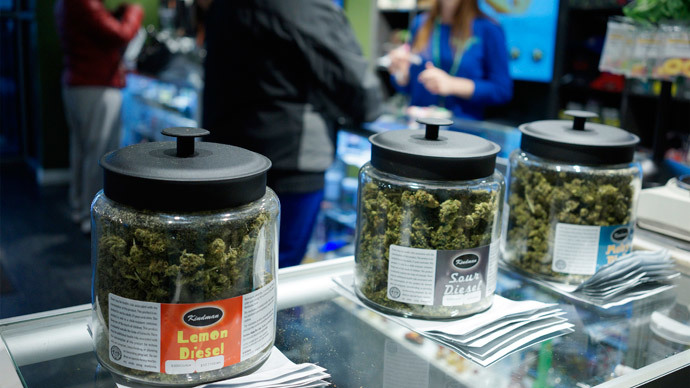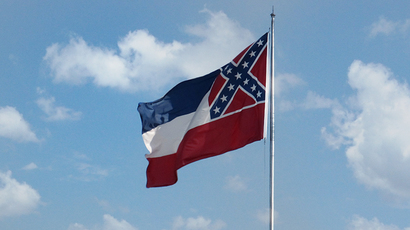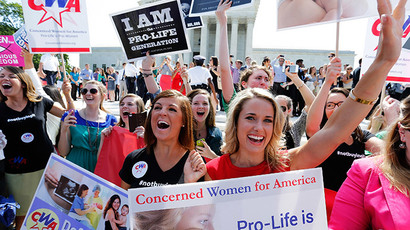Small businesses impacted by religious freedom bills, marijuana legalization

Competition from big corporations isn’t the only thing entrepreneurs worry about. Small business owners have split and shifting views about hot-button issues like religious freedom bills, pot legalization and the 2016 presidential race, a new poll found.
Manta conducted a series of polls among its small business community, and found that “2015 is shaping up to be a politically charged year for small businesses — from Indiana to presidential candidates to the legalization of marijuana,” the company said in a statement.
With Indiana and Arkansas drawing ire from citizens and corporations alike over their passage of their Religious Freedom Restoration Act (RFRA) legislation, a family-owned pizzeria in Indiana became a prime example of just how such laws can affect small businesses.
READ MORE: Indiana hires PR firm to fix image in wake of religious freedom bill controversy
Memories Pizza's proprietors told a local news affiliate they would refuse to cater for a same-sex wedding ‒ a right they said is provided to them under the Indiana RFRA. The eatery immediately became the face of a much-larger movement waged against the state’s so-called “license to discriminate.” The attention eventually prompted the store to temporarily close amid security concerns, the owners said. The Indiana pizzeria raised close to a million dollars from people upset with the backlash.
In light of the national debate on RFRA bills, Mantra asked small businesses whether they would support a similar initiative in their own state. A slim majority ‒ 53 percent ‒ said that they would not.
Other legislation is spreading among states as well, including bills about the use of both medical and recreational marijuana.
As more and more states follow the lead of Colorado and Washington in the legalization of pot ‒ or, at the very least, decriminalization of the drug ‒ small businesses are almost evenly split on whether it will be a net boom or bust for their local economies. The survey showed 29 percent believe legalizing or decriminalizing marijuana would be a boon for local small businesses, while 32 percent dissented and 39 percent were unsure.
The legalization won’t prevent employers from requiring their workers to take drug tests ‒ 42 percent of small business owners report that they will either begin or continue their current practice of drug testing, if marijuana is legalized in their state.
Manta found that testing may be a smart move. The poll showed 59 percent of respondents who don’t own a small business said they wouldn’t patronize a small business that didn’t drug test its employees, even if marijuana is legalized or decriminalized.
READ MORE: Majority of Americans support legalizing marijuana – polls
The Affordable Care Act (ACA, better known as Obamacare) also has a significant impact on small businesses. It remains controversial, Manta found, particularly among small business owners tackling changes in premiums and new coverage requirements.
“‘Obamacare’ is not yet in full effect for many small businesses, but they’re already feeling the squeeze,” Manta said. “For those not offering health insurance, the impact on growth and hiring can be severe.”
Nearly six in 10 ‒ 59 percent ‒ of small businesses don’t offer health insurance because it’s too expensive and, of those that do, 77 percent saw premiums increase since their last renewal. Almost a quarter ‒ 24 percent ‒ of those businesses that don’t offer health care said they have lost potential employees to other job opportunities because they did not offer health insurance.
Manta discovered “a significant [political] shift among small business owners” in its poll.
Among the 2016 presidential hopefuls, Hillary Clinton has the highest approval with 42 percent of small business owners’ support, even though they have “traditionally swayed Republican.” As recently as August 2014, Clinton was ranked in third place behind prospective GOP candidates Mitt Romney, who has declined to run, and Rand Paul, who has since entered the race.
Manta is a company that provides online resources dedicated to helping small businesses become more competitive in their respective industries, Manta says on its website.














